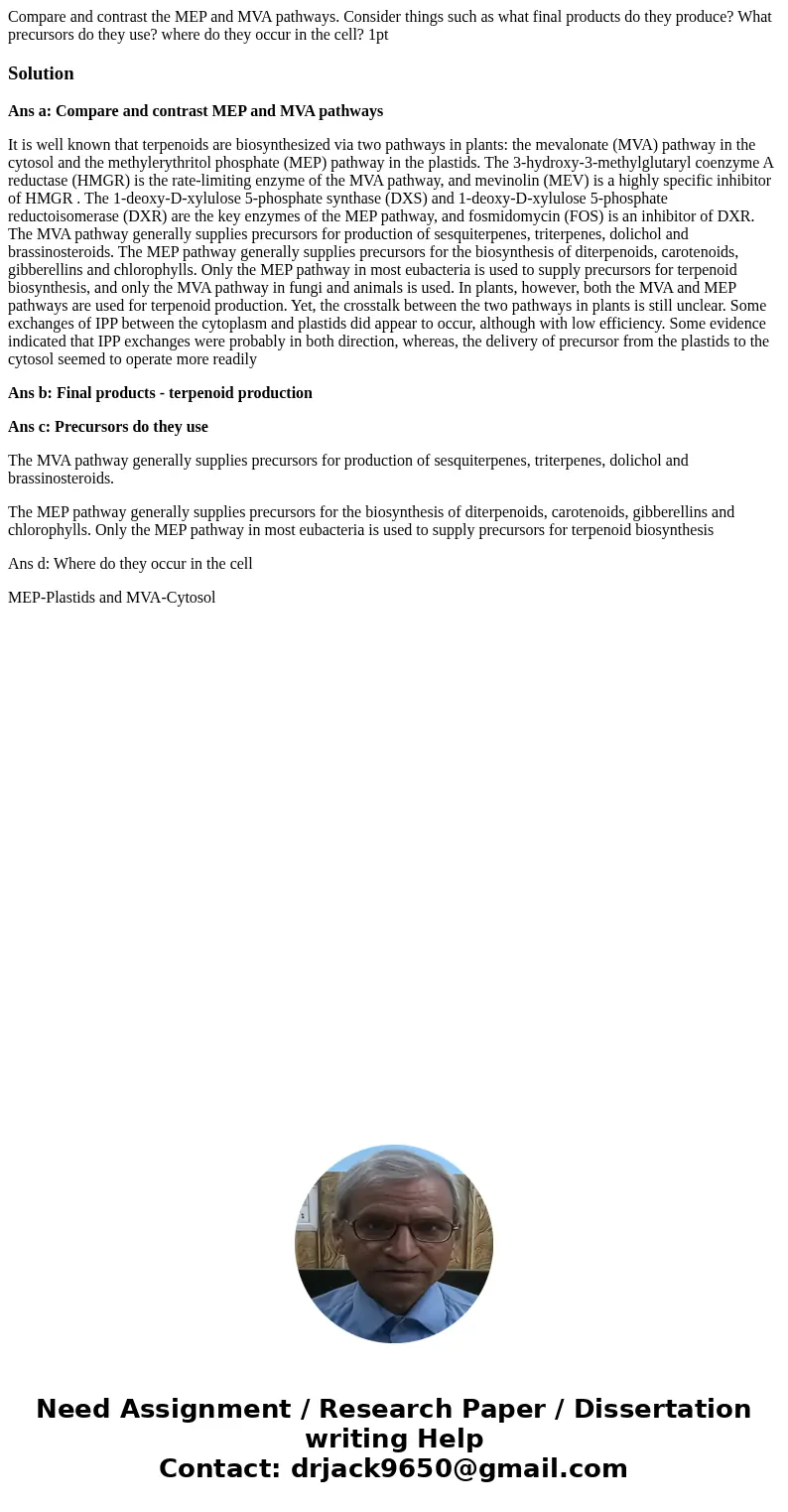Compare and contrast the MEP and MVA pathways Consider thing
Solution
Ans a: Compare and contrast MEP and MVA pathways
It is well known that terpenoids are biosynthesized via two pathways in plants: the mevalonate (MVA) pathway in the cytosol and the methylerythritol phosphate (MEP) pathway in the plastids. The 3-hydroxy-3-methylglutaryl coenzyme A reductase (HMGR) is the rate-limiting enzyme of the MVA pathway, and mevinolin (MEV) is a highly specific inhibitor of HMGR . The 1-deoxy-D-xylulose 5-phosphate synthase (DXS) and 1-deoxy-D-xylulose 5-phosphate reductoisomerase (DXR) are the key enzymes of the MEP pathway, and fosmidomycin (FOS) is an inhibitor of DXR. The MVA pathway generally supplies precursors for production of sesquiterpenes, triterpenes, dolichol and brassinosteroids. The MEP pathway generally supplies precursors for the biosynthesis of diterpenoids, carotenoids, gibberellins and chlorophylls. Only the MEP pathway in most eubacteria is used to supply precursors for terpenoid biosynthesis, and only the MVA pathway in fungi and animals is used. In plants, however, both the MVA and MEP pathways are used for terpenoid production. Yet, the crosstalk between the two pathways in plants is still unclear. Some exchanges of IPP between the cytoplasm and plastids did appear to occur, although with low efficiency. Some evidence indicated that IPP exchanges were probably in both direction, whereas, the delivery of precursor from the plastids to the cytosol seemed to operate more readily
Ans b: Final products - terpenoid production
Ans c: Precursors do they use
The MVA pathway generally supplies precursors for production of sesquiterpenes, triterpenes, dolichol and brassinosteroids.
The MEP pathway generally supplies precursors for the biosynthesis of diterpenoids, carotenoids, gibberellins and chlorophylls. Only the MEP pathway in most eubacteria is used to supply precursors for terpenoid biosynthesis
Ans d: Where do they occur in the cell
MEP-Plastids and MVA-Cytosol

 Homework Sourse
Homework Sourse